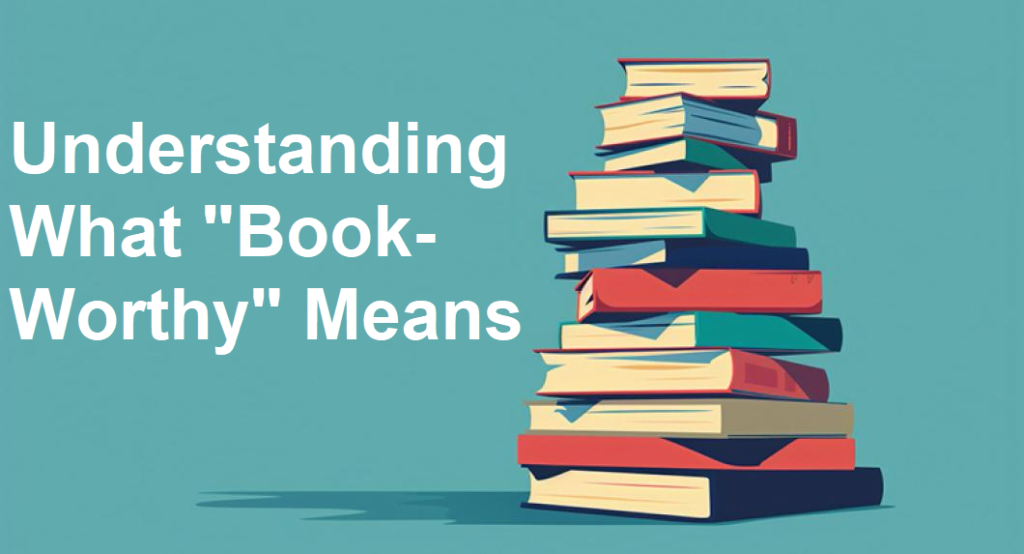
How to Evaluate a Book Idea: The Best Methods for Book Idea Validation
So, you’ve got a book idea that seems exciting, but how do you know if it’s really worth your time, energy, and creativity? Writing a book is no small feat, it takes dedication, time, and focus. So, before you dive in, it’s important to evaluate if your idea has the potential to succeed in the market.
In this guide on how to evaluate a book idea, we’ll walk you through the best methods to test the viability of your concept and ensure it has what it takes to captivate an audience.
Understanding What Makes a Book Idea “Worth It”

A book-worthy idea is one that can hook readers, keep them engaged for the duration of the story, and deliver value. Whether it’s entertainment, knowledge, or a compelling narrative, your idea needs to capture readers’ attention from beginning to end.
A book idea isn’t just a plot, it’s a concept that resonates with target readers.
Personal Passion vs. Market Appeal
While your book idea might be incredibly personal, the real challenge is determining if it will appeal to a wider audience. Market research and audience insights are critical.
You need to balance your own passion with what potential readers are looking for.
Evaluating the Uniqueness and Market Demand for Your Idea

Is Your Idea Fresh?
It’s easy to come up with an idea that feels unique to you, but will it stand out in a crowded market? Your book idea should bring something fresh to the table. Even if similar books exist, your perspective, voice, or approach can differentiate it. Look for unique angles that will make your work stand out.
Market Research: How to Assess Demand
Keyword research is one of the best ways to evaluate whether there’s demand for your book idea. Platforms like Google Trends, Amazon, and Goodreads can help you understand the popularity of topics and genres similar to yours. Research bestsellers in your genre and read reviews to understand reader expectations.
Amazon search bar suggestions and tools like Google Trends can also offer insights into what people are searching for, helping you gauge whether there’s a market for your book.
Understand Your Target Audience

Define Your Ideal Reader
One of the most important steps in book idea validation is understanding your target audience. Is your book for young adults, professionals, or entrepreneurs?
Defining this early will guide the direction of your story, tone, and style. If your book idea doesn’t have a clear target audience, it’s unlikely to resonate with readers.
Reader Engagement: How to Gauge Interest
Before you start writing, you can test your book idea using social media, blog posts, or forums. If a blog post or social media thread around your idea gets good engagement, you might have a winner. Pay attention to likes, comments, and shares to understand if your book idea truly resonates with readers.
Assessing the Competition and Market Demand

Study Similar Books
To ensure that your book idea is viable, look at similar books in the market. What do readers like about these books? What’s missing? Studying the competition allows you to identify gaps in the market that your book could fill.
What Makes Your Idea Different?
Your book idea needs to offer something different from other books in the same genre. Whether it’s a fresh perspective, unique characters, or a distinctive writing style, make sure your idea has something that sets it apart from the crowd.
How to Test the Market with Smaller Formats

Blog Posts, Articles, and Social Media
You don’t have to write an entire book to test your book idea. You can start by writing blog posts, creating articles, or posting social media content about your concept. Smaller formats can help you gauge interest before committing to a full manuscript.
Feedback from Friends and Writing Groups
Seek feedback from your trusted circles. Friends, writing groups, and mentors can provide valuable insight into whether your book idea has the potential to succeed. However, remember that honest feedback is more valuable than polite praise.
Final Steps to Validate Your Book Idea

Write a Book Proposal (Even for Self-Publishing)
Whether you’re pursuing self-publishing or traditional publishing, a book proposal is a great way to organize your thoughts and validate your book idea. A proposal forces you to think about your audience, market, and competition. It also helps you stay focused on your core message throughout the writing process.
Trust Your Instincts
After completing the research, don’t forget to listen to your gut. Sometimes, your intuition can tell you if an idea feels right. If your passion shines through, it’s more likely that your readers will feel the same way.
Conclusion
Evaluating your book idea is a crucial step before committing to writing. It involves understanding your audience, analyzing the competition, and ensuring that your idea is fresh and marketable. With a little research and passion, you can discover whether your idea is worth pursuing.
Whether you’re aiming for commercial success or writing for personal fulfillment, ensure your idea has the potential to resonate with readers.
FAQs
1. How do I know if my book idea is worth pursuing?
A book idea is worth pursuing if it has market demand, a unique perspective, and resonates with a target audience.
2.How do I test if my book idea is popular?
Use social media, write blog posts, or create articles to see how people engage with your idea. Feedback from readers can help validate its potential.
3. What if my book idea has already been done?
It’s fine if others have written about the same topic. The key is to bring your unique perspective and voice to make it fresh.
4. What is a book proposal, and why is it important?
A book proposal is a document that outlines your book’s concept, audience, and competition. It helps clarify your book idea and keeps you focused throughout the writing process.
5. What factors should I consider when evaluating a book idea?
Evaluate factors like audience appeal, market demand, uniqueness, and competition to ensure your book idea has the potential for success.
